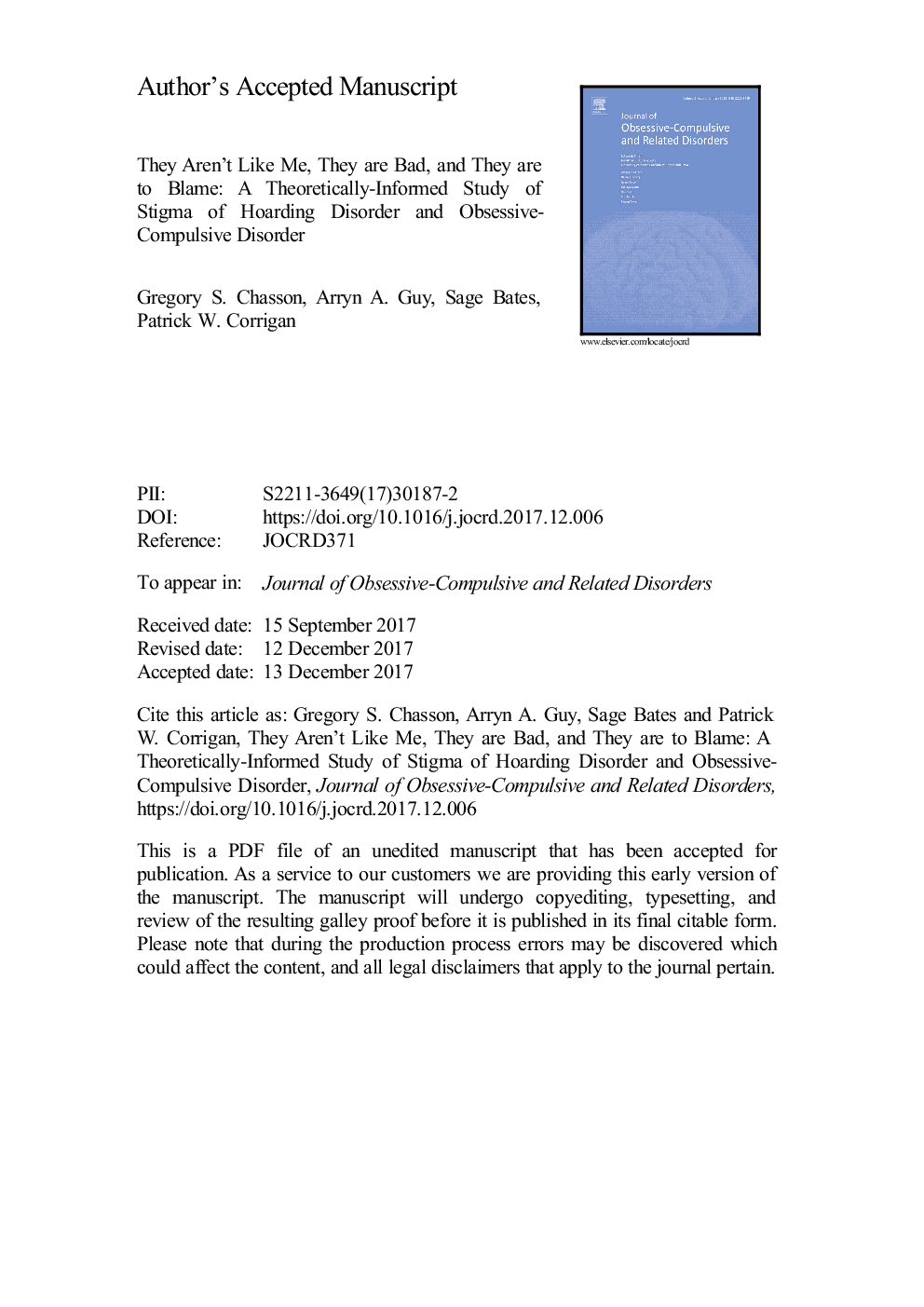ترجمه فارسی عنوان مقاله
آنها، مانند من، آنها بد هستند، و آنها را سرزنش می کنند: یک مطالعه نظری آگاهانه از شرم آور اختلال ذخیره و اختلال وسواسی- اجباری
عنوان انگلیسی
They arenât like me, they are bad, and they are to blame: A theoretically-informed study of stigma of hoarding disorder and obsessive-compulsive disorder
| کد مقاله | سال انتشار | تعداد صفحات مقاله انگلیسی |
|---|---|---|
| 123975 | 2018 | 41 صفحه PDF |
منبع

Publisher : Elsevier - Science Direct (الزویر - ساینس دایرکت)
Journal : Journal of Obsessive-Compulsive and Related Disorders, Volume 16, January 2018, Pages 56-65
ترجمه کلمات کلیدی
اختلال هورمونی، اختلال وسواسی-اجباری، استقامت،
کلمات کلیدی انگلیسی
Hoarding disorder; Obsessive-compulsive disorder; Stigma;

